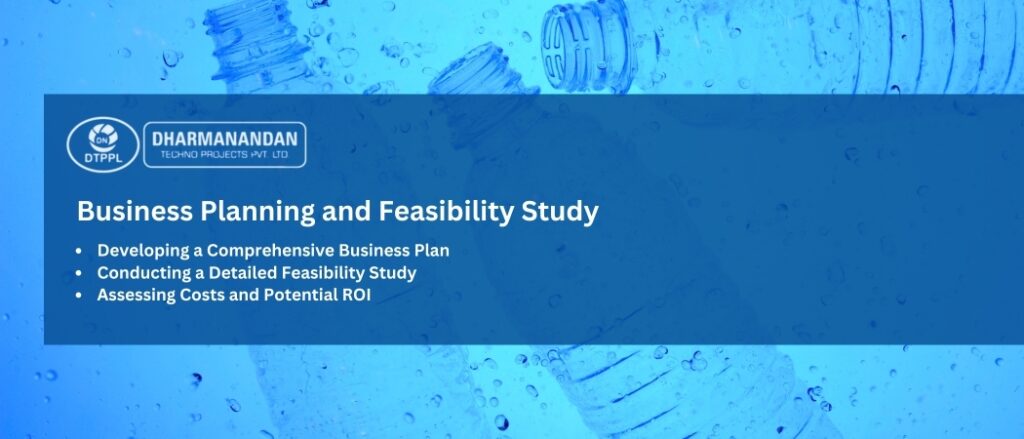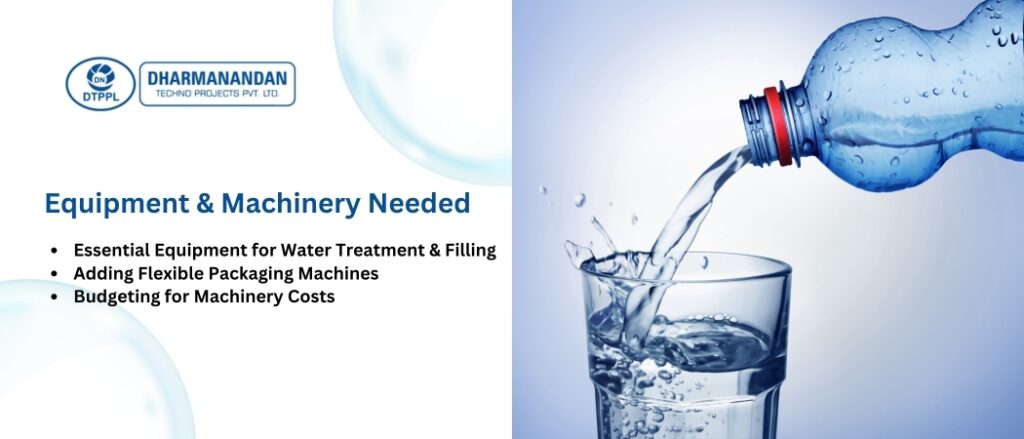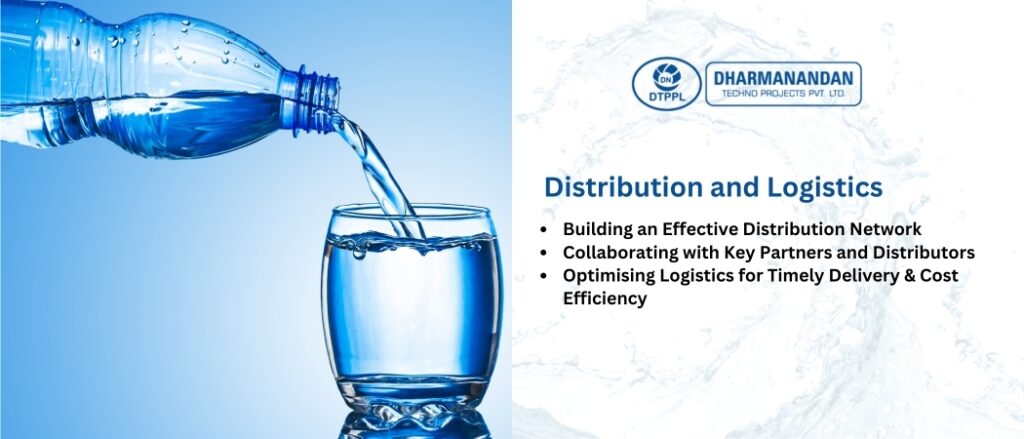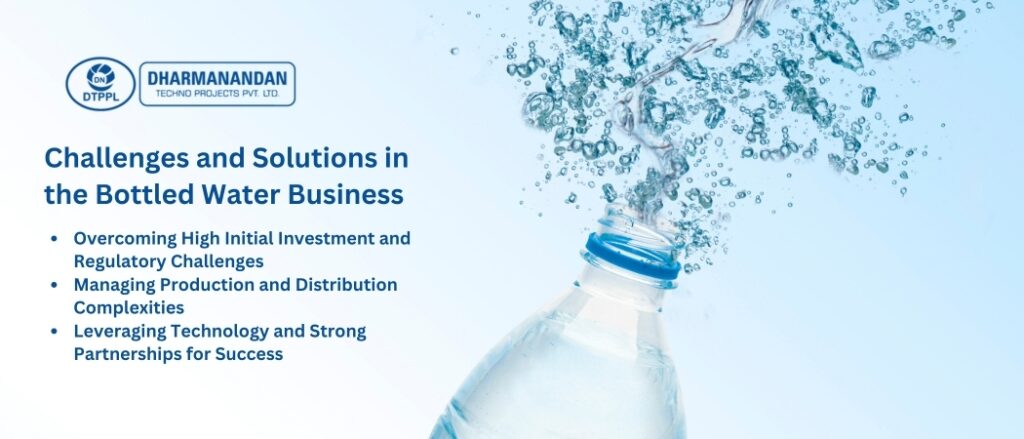
Table of Contents
How to Start a Bottle Water Supply Company like Bisleri?
September 1, 2024
The bottled water industry in India has witnessed exponential growth over the past few decades, driven by increasing health consciousness and concerns about water quality. Brands like Bisleri have set the standard for quality and trust, making bottled water a staple in households, offices, and public places across the country. With rising demand, the industry presents a lucrative opportunity for entrepreneurs. However, breaking into this market requires careful planning and execution, as competition is fierce.
Bisleri’s success story serves as a benchmark for aspiring bottled water entrepreneurs. Understanding the factors that contributed to its dominance can provide valuable insights. From brand building to maintaining stringent quality controls, Bisleri has perfected the art of bottled water production and distribution. Starting a similar venture involves not only understanding the market dynamics but also replicating and innovating upon Bisleri’s proven strategies.
Steps to Start a Mineral Water Plant Business
Starting a mineral water plant business involves a series of strategic steps to ensure success and compliance. First, it’s essential to understand the distilled water market, including demand trends and competition. Next, fulfilling legal and regulatory requirements such as BIS certification, FSSAI license, and pollution control clearances is crucial. A thorough business plan and feasibility study help define capital investment, target customers, and operational structure. Selecting the right location with access to clean water and good logistics is vital. Setting up the plant includes installing water treatment systems, filtration units, and bottling machinery, supported by reliable water sources. Partnering with quality mineral water bottle suppliers ensures consistent packaging standards. The production process should include purification, mineralization, bottling, labeling, and quality checks. Effective packaging and labeling play a key role in brand appeal. Building a robust distribution and logistics network helps deliver products efficiently. Strong marketing and branding strategies enhance visibility in a competitive market. A detailed cost analysis and pricing plan ensures profitability, while sound financial planning supports long-term stability. Finally, anticipating challenges such as regulatory changes or supply disruptions, and exploring future growth opportunities like flavored or functional water lines, can keep the business sustainable and scalable.
Understanding the Bottled Water Market
The bottled water market in India is characterized by a diverse range of players, from established giants like Bisleri to numerous local brands. To succeed in this competitive environment, it’s essential to conduct a thorough market analysis. Understanding current trends, such as the increasing preference for healthier, mineral-rich water, and future predictions, like the shift towards eco-friendly packaging, will help shape your business strategy.
Analyzing the strengths and weaknesses of key competitors can provide a roadmap for new entrants. By identifying gaps in the market and positioning your brand effectively, you can carve out a niche even in a crowded marketplace. Ultimately, success in this market depends on your ability to differentiate your product while meeting the evolving needs of consumers.
Comply with Legal Requirements & Regulations
Starting a bottled water business in India requires careful attention to a wide range of legal and regulatory obligations. First and foremost, securing necessary licenses and approvals is essential. This includes FSSAI registration, mandated by the Food Safety and Standards Authority of India, to certify that your product complies with national food safety norms. Additionally, BIS certification is compulsory-Packaged Drinking Water must adhere to IS:14543, and Packaged Natural Mineral Water must follow IS:13428 standards set by the Bureau of Indian Standards. Environmental regulations are equally critical, especially for a water-intensive industry. Businesses must obtain environmental clearances, including permission for groundwater extraction and consent from the State Pollution Control Board for waste management and emissions control. A Water Test Report from a certified lab is required to validate the quality of both the source and processed water. Furthermore, a Pest Control Certificate ensures that hygiene standards are maintained at the facility. Non-compliance with any of these regulations can lead to legal penalties and operational delays. Therefore, it is crucial to stay updated with evolving laws and consult legal or compliance experts to ensure your plant operates safely, legally, and responsibly.
Click Here to Learn Getting ISI & FSSAI Licenses for Mineral Water Plant
Business Planning and Feasibility Study
A well-crafted business plan is the foundation of any successful bottled water company. This plan should outline your business objectives, target market, financial projections, and operational strategies. It serves as a roadmap for your venture and is also crucial for securing funding from investors or financial institutions. In addition to a business plan, conducting a feasibility study will help assess the practicality and potential profitability of your business.
The feasibility study involves a detailed analysis of the costs associated with setting up a mineral water plant, including equipment, location, and operational expenses. It also examines the potential return on investment based on market demand and competition. Understanding these factors will help you make informed decisions and avoid costly mistakes. A thorough feasibility study is essential for ensuring that your bottled water business is viable and sustainable in the long term.
Click Here to Learn More About Profitability of Mineral Water Business

Choosing the Right Location
Selecting the right location for your bottled water plant is a critical decision that can significantly impact your business’s success. The location should be strategically chosen to ensure easy access to a reliable water source and proximity to your target market. Additionally, the cost of land, availability of infrastructure, and local regulations are factors that need careful consideration during the site selection process.
Click Here to Learn Selecting the Right Location for the Mineral Water Plant Setup
Proximity to transportation networks is another crucial factor, as it affects the cost and efficiency of distribution. A well-located plant can reduce logistical expenses and ensure timely delivery of products to retailers and distributors. Moreover, being close to your customer base can give you a competitive edge in terms of fresher products and reduced transport costs. Overall, the right location is vital for optimizing operations and maximizing profitability.
Setting Up the Water Plant
Setting up a water bottling plant like Bisleri involves several steps, from acquiring the necessary permits to installing state-of-the-art machinery. The initial phase includes site preparation, infrastructure development, and sourcing high-quality equipment. Understanding the cost of setting up a mineral water plant is essential, as it involves significant capital investment in land, construction, and machinery.
Once the infrastructure is in place, the next step is the installation of water treatment, bottling, and packaging equipment. Sourcing reliable and efficient machinery is crucial for maintaining high production standards and ensuring product quality. It’s also important to work with experienced contractors and suppliers who can guide you through the setup process. With careful planning and execution, you can establish a plant that meets industry standards and positions your brand for success.
Water Sourcing and Treatment Process
The quality of the water source is the cornerstone of a successful bottled water business. Identifying a pure and sustainable water source is paramount, as it directly impacts the final product’s quality. Once the source is secured, the water undergoes a rigorous treatment process, which typically includes filtration, reverse osmosis (RO), and mineralization to ensure it meets safety and taste standards. The RO plant water process is particularly vital in removing impurities and ensuring the water is safe for consumption.
In addition to the RO process, a water softening plant is often employed to remove hardness caused by minerals like calcium and magnesium. This step is crucial, especially in areas where the water is naturally hard. Proper treatment ensures that the water is not only safe but also pleasant to drink. A well-designed treatment process is essential for maintaining the high standards expected in the bottled water industry.
Equipment and Machinery Needed
Establishing a bottled water plant requires a range of specialized equipment and machinery. The essential machines include those for water treatment, bottle filling, and packaging. A water bottle filling machine, for instance, must be efficient and reliable to handle the volume of production required to meet market demands. The type and capability of the filling machine can significantly impact your production efficiency and product consistency.
In addition to filling machines, a water pouch packing machine might be necessary if you plan to offer water in flexible packaging formats. This machine ensures that the water is securely sealed in pouches, maintaining hygiene and extending shelf life. Budgeting for these machines is crucial, as they represent a significant portion of the initial investment. Understanding the water plant machine price helps in planning your budget effectively, ensuring that you invest in high-quality equipment that meets your production needs.

Partnering with Mineral Water Plant Suppliers
Choosing the right mineral water plant supplier is a critical step in setting up your bottled water business. A reliable supplier like Dharmanandan Techno Projects Pvt. Limited provides not only high-quality machinery but also ongoing support and maintenance services. Partnering with a reputable mineral water plant manufacturer like us ensures that your plant operates efficiently and meets the stringent quality standards of the industry. It’s important to evaluate potential suppliers based on their track record, customer reviews, and the warranty they offer on their equipment.
As a leading mineral water plant supplier we suggest that negotiating terms is equally important. A good supplier relationship can provide advantages like favourable payment terms, timely delivery, and customized solutions tailored to your specific needs. Additionally, a strong partnership can lead to long-term benefits, such as access to the latest technological advancements and preferential pricing on future equipment purchases. Building a solid partnership with your suppliers is essential for the smooth operation and growth of your bottled water business.
Production Process at a Bottled Water Plant
The production process at a bottled water plant involves several key stages, from water treatment to bottling and packaging. Each step is carefully controlled to ensure the final product meets stringent quality standards. The process begins with water treatment, where the water is filtered, purified, and mineralized. This is followed by the bottling process, where the treated water is filled into bottles using high-speed, automated filling machines. Ensuring product consistency and safety at every stage is crucial for maintaining consumer trust.
Quality control measures are an integral part of the production process. Regular testing of water samples ensures that the water meets all safety standards, while checks on the bottling and packaging process help prevent contamination and ensure product integrity. Implementing rigorous quality control protocols helps protect your brand’s reputation and ensures that consumers receive a safe, high-quality product every time they purchase your bottled water.
Curious to Learn How to Start a Mineral Water Business? Click Here
मिनरल वाटर का व्यवसाय कैसे शुरू करें, यह जानने के लिए उत्सुक हैं? यहाँ क्लिक करें
Packaging and Labelling
Packaging and labelling are vital components of your bottled water brand. Attractive and functional packaging not only protects the product but also plays a key role in marketing and brand recognition. Bottles, jars, and pouches are common packaging options, and each serves different market segments. The design of your packaging should reflect your brand’s identity and appeal to your target audience while adhering to industry regulations.
Labelling is equally important as it provides essential information about the product, including its source, composition, and safety standards. Compliance with labelling regulations is necessary to avoid legal issues and to build consumer trust. A well-designed label that clearly communicates the quality and benefits of your water can differentiate your product in a crowded market and help attract and retain customers.
Distribution and Logistics
An efficient distribution network is essential for the success of your bottled water business. Setting up a distribution network involves identifying key partners, such as retailers and distributors, who can help you reach your target market effectively. Collaborating with these partners ensures that your product is available to consumers when and where they need it. Building strong relationships with distributors can also provide insights into market trends and consumer preferences, helping you adjust your strategy accordingly.
Logistics play a critical role in ensuring that your product reaches the market in a timely and cost-effective manner. Efficient logistics reduce the time it takes for your bottled water to reach store shelves, maintaining product freshness and quality. Additionally, optimizing your logistics can significantly reduce costs, making your business more competitive. A well-planned distribution and logistics strategy is key to achieving widespread market penetration and sustaining business growth.

Marketing and Branding
Marketing and branding are essential for building a successful bottled water business. Developing a strong brand identity helps differentiate your product from competitors and establishes a connection with your target audience. Effective marketing strategies, including traditional advertising, social media campaigns, and digital marketing, can increase brand awareness and drive sales. It’s important to highlight the unique selling points of your product, such as its source, purity, and benefits.
Branding goes beyond just a logo and packaging. It encompasses the overall experience you provide to your customers, from the quality of the water to customer service. Consistency in branding across all touch points, including packaging, advertising, and online presence, helps build trust and loyalty among consumers. A strong brand not only attracts customers but also retains them, leading to long-term business success.
Cost Analysis and Pricing Strategy
Understanding the cost structure of your bottled water business is crucial for developing a sustainable pricing strategy. The cost of setting up a water bottling plant includes expenses related to equipment, infrastructure, and operational costs. Additionally, ongoing costs such as raw materials, labour, and distribution must be factored into your pricing model. A comprehensive cost analysis helps you determine the minimum price at which you can sell your product while still making a profit.
Your pricing strategy should consider market competition, consumer demand, and perceived value. For example, the cost of producing a 20-litre jar of mineral water may differ from that of smaller bottles, and your pricing should reflect these differences. Competitive pricing can attract price-sensitive customers, while premium pricing might be suitable for high-quality, niche products. A well-thought-out pricing strategy ensures that your business remains profitable while appealing to your target market.
Want to Learn About a Detailed Breakdown for Setting up Mineral Water Plant? Click Here
Financial Planning and Investment
Financial planning is a critical aspect of starting a bottled water business. It involves estimating the initial investment required, including the cost of land, machinery, and setup. Securing funding is often necessary, and this can be done through loans, investors, or personal savings. A detailed financial plan helps you allocate resources efficiently and avoid overspending. It also provides a roadmap for managing cash flow and ensuring the business’s financial health.
Ongoing financial management includes monitoring operational expenses and adjusting your budget as needed. It’s essential to regularly review your financial performance against your projections to identify any discrepancies and take corrective action. Proper financial planning and management not only ensure the viability of your business in the early stages but also support its growth and expansion in the long term.
Challenges and Solutions in the Bottled Water Business
Starting and running a bottled water business comes with its share of challenges. Common issues include high initial investment costs, stringent regulatory requirements, and competition from established brands. Additionally, managing the logistics of production, distribution, and maintaining product quality can be complex and resource-intensive. Identifying these challenges early on allows you to develop strategies to overcome them and minimize their impact on your business.
Solutions to these challenges often involve strategic planning and investment in technology. For instance, investing in automated machinery can reduce operational costs and increase efficiency. Building strong relationships with suppliers and distributors can help mitigate risks related to supply chain disruptions. Moreover, staying updated on industry trends and regulations ensures that your business remains compliant and competitive. By proactively addressing these challenges, you can ensure the long-term success of your bottled water venture.

Future Growth Opportunities
The bottled water industry continues to evolve, presenting new growth opportunities for businesses. Expanding your product line to include innovations like Water ATMs or flavoured waters can attract new customer segments and increase revenue. Additionally, entering new markets, both domestically and internationally, can help diversify your customer base and reduce dependence on a single market.
Future growth also depends on your ability to adapt to changing consumer preferences and industry trends. For example, the demand for eco-friendly packaging and health-focused products is on the rise. By staying ahead of these trends and continuously innovating, your business can maintain its competitive edge and achieve sustained growth. Exploring new technologies and markets can open up exciting opportunities for expansion and long-term success.
Conclusion
Starting a bottled water plant like Bisleri requires careful planning, substantial investment, and a commitment to quality. The steps outlined in this guide provide a comprehensive roadmap for navigating the complexities of the industry, from setting up the plant to marketing your product. Understanding the challenges and opportunities within the market is crucial for making informed decisions and achieving success.
As you embark on this venture, remember that continuous learning and adaptation are key to staying competitive. The bottled water industry is dynamic, and staying ahead of trends and consumer preferences will position your business for long-term success. With the right strategy and execution, you can build a thriving bottled water brand that resonates with consumers and stands the test of time.
About Author

Director – Global Marketing and Sales
Mr. Bhavesh from Dharmanandan Techno Projects Pvt. Ltd. has played a pivotal role in elevating the DTPPL brand to the global stage, leveraging his exceptional expertise in marketing and communications. He is committed to helping clients achieve significant growth while strengthening their own brands. Dharmanandan Techno Projects Pvt. Ltd. is a leading manufacturer and supplier of water purification systems and turnkey solutions for mineral water plants. With years of experience in designing and delivering high-quality water treatment solutions, the company provides end-to-end services, including system design, installation, maintenance, and ongoing support. Specializing in scalable and customizable water plants, DTPPL has successfully served industries worldwide, ensuring clean and safe drinking water across diverse applications.




